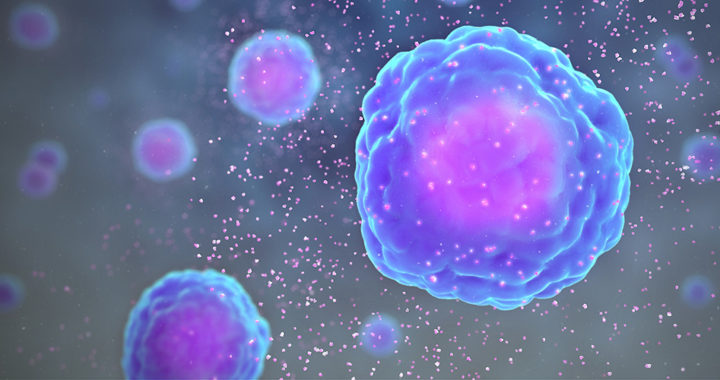Cytokines are immunomodulating agents responsible for regulating the immune response. They are produced and secreted by certain immune and non-immune cells. More specifically, they are a broad and loose category of small proteins that collectively function as a significant communication mechanism used by the immune system and the body in general.
Functions and Roles in the Immune System
Understanding the General Functions of Cytokines
Remember that the general function of cytokines centers on regulating the immune system. Some of them stimulate the immune response through their pro-inflammation effects, while others slow it down through their anti-inflammatory effects.
They are important in the maintenance of overall health, specifically in managing diseases. For example, the body produces them to aid in the immune response to infections caused by viruses, bacteria, and other pathogens, as well as to inflammation, trauma, sepsis, cancer, and trauma. More specific functions include immune cell differentiation, inflammation, angiogenesis, tumorigenesis, neurobiology, viral pathogenesis.
More importantly, as immunomodulating agents, they are important in cell signaling. They act through cell surface receptors to modulate communication between cells. They also modulate the balance between humoral and cell-mediated immune responses.
Some cytokines regulate the responsiveness and the growth and maturation of particular cell populations, thus playing a crucial role in keeping cancer at bay. Others inhibit or promote the actions of other cytokines through a complex mechanism.
Their distinction from hormones is still debatable. Note that hormones are also signaling molecules. Current research has revealed that hormones usually circulate in higher concentrations, and their mediating effects are local rather than systemic.
Specific Types, Their Specific Roles, and Importance
Understanding better the functions and importance of cytokines require the specific and different roles of its different types, subsets, or classes. Take note of the following:
• Lymphokines: Produced by immune cells known as lymphocytes such as T cells. They direct immune response by attracting other immune cells such as macrophages and other lymphocytes to an infected site, as well as by aiding B cells to produce antibodies. Note that lymphocytes circulating in the body can identify small concentrations of these proteins to concentrate immune response to a particular area.
• Interferons: Made and secreted by host cells in response to a viral infection. Specifically, a virus-infected cell will release this signaling protein to trigger nearby cells to ramp up their own anti-viral defense. They also activate natural killer cells and macrophages, and increases internal cellular defense by up-regulating antigen presentation. The secretion of these proteins is responsible for so-called flu-like symptoms such as fever and muscle pain.
• Chemokines: Released by cells to induce chemotaxis in immune cells or, in other words, to prompt these neighboring cells to migrate or move through venules from the blood into the tissue and vice versa. Chemokines also regulate the differentiation of T cells, control the development of the lymphoid organ, and mediate metastasis of tumor cells.
• Tumor Necrosis Factor: Expressed predominantly by immune cells during early inflammatory events. It is a multifunctional type of cytokines that plays a diverse role in survival, proliferation, differentiation, and death of cells. Furthermore, it is responsible for triggering the secretion of other pro-inflammatory proteins and molecules such as other cytokines, reactive oxygen species, and reactive nitrogen intermediaries,
It is important to reiterate the fact that some cytokines are pro-inflammatory proteins while others are anti-inflammatory proteins. Major anti-inflammatory cytokines include interleukin or IL-1 receptor antagonist, IL-4, IL-6, IL-10, and IL-13. Specific receptors for IL-1, tumor necrosis factor-alpha, and IL-18 also function as pro-inflammatory cytokine inhibitors.
The adverse effects of pro-inflammatory proteins have been associated with different medical conditions. More specifically, the over secretion of cytokines during an infection or as part of an immune response can trigger a critical and life-threatening biological event called a cytokine storm in which the immune system overreacts and attack cells and tissues.
FURTHER READINGS AND REFERENCES
- Hoffman, E. 2020. “Cytokine Storm: Definition, Causes, and Effects.” Profolus. Available online
- O’Shea, J. J., Gadina, M., and Siegel, R. 2013. “Cytokines and Cytokine Receptors.” Clinical Immunology. 4th ed. Available online
- Foster, J. R. 2001. “The Functions of Cytokines and their Uses in Toxicology.” International Journal of Experimental Pathology. 82(3): 171-192. PMID: 11488991
- Ray, A. 2016. “Cytokines and their Role in Health and Disease: A Brief Overview.” MOJ Immunology. 4(2). DOI: 15406/moji.2016.04.00121
- Wang, X. and Lin, Y. 2008. “Tumor Necrosis Factor and Cancer, Buddies or Foes?” Acta Pharmacologica Sinica. 29(11): 1275-1288. 1111/j.1745-7254.2008.00889.x





